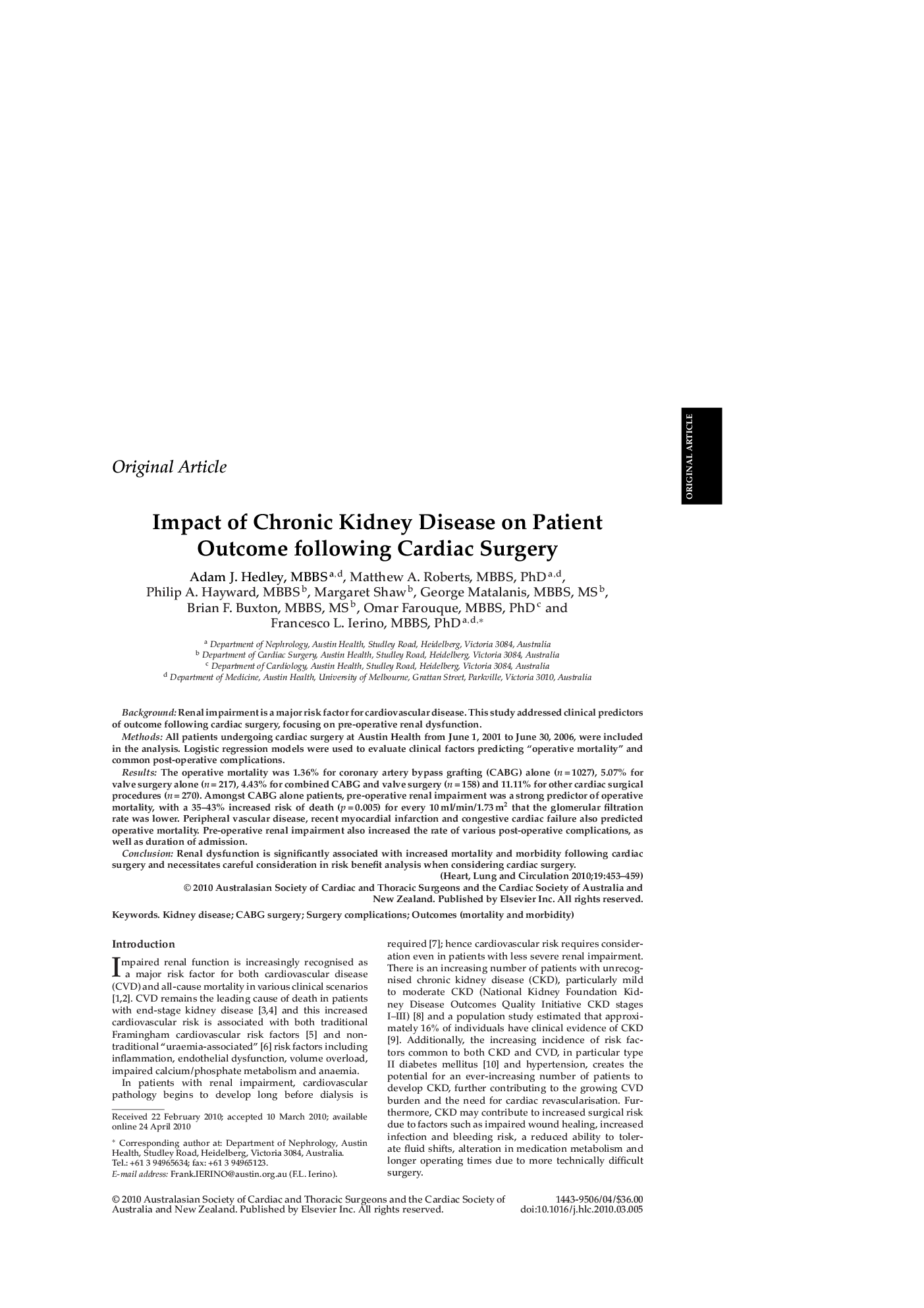| Article ID | Journal | Published Year | Pages | File Type |
|---|---|---|---|---|
| 2920612 | Heart, Lung and Circulation | 2010 | 7 Pages |
BackgroundRenal impairment is a major risk factor for cardiovascular disease. This study addressed clinical predictors of outcome following cardiac surgery, focusing on pre-operative renal dysfunction.MethodsAll patients undergoing cardiac surgery at Austin Health from June 1, 2001 to June 30, 2006, were included in the analysis. Logistic regression models were used to evaluate clinical factors predicting “operative mortality” and common post-operative complications.ResultsThe operative mortality was 1.36% for coronary artery bypass grafting (CABG) alone (n = 1027), 5.07% for valve surgery alone (n = 217), 4.43% for combined CABG and valve surgery (n = 158) and 11.11% for other cardiac surgical procedures (n = 270). Amongst CABG alone patients, pre-operative renal impairment was a strong predictor of operative mortality, with a 35–43% increased risk of death (p = 0.005) for every 10 ml/min/1.73 m2 that the glomerular filtration rate was lower. Peripheral vascular disease, recent myocardial infarction and congestive cardiac failure also predicted operative mortality. Pre-operative renal impairment also increased the rate of various post-operative complications, as well as duration of admission.ConclusionRenal dysfunction is significantly associated with increased mortality and morbidity following cardiac surgery and necessitates careful consideration in risk benefit analysis when considering cardiac surgery.
